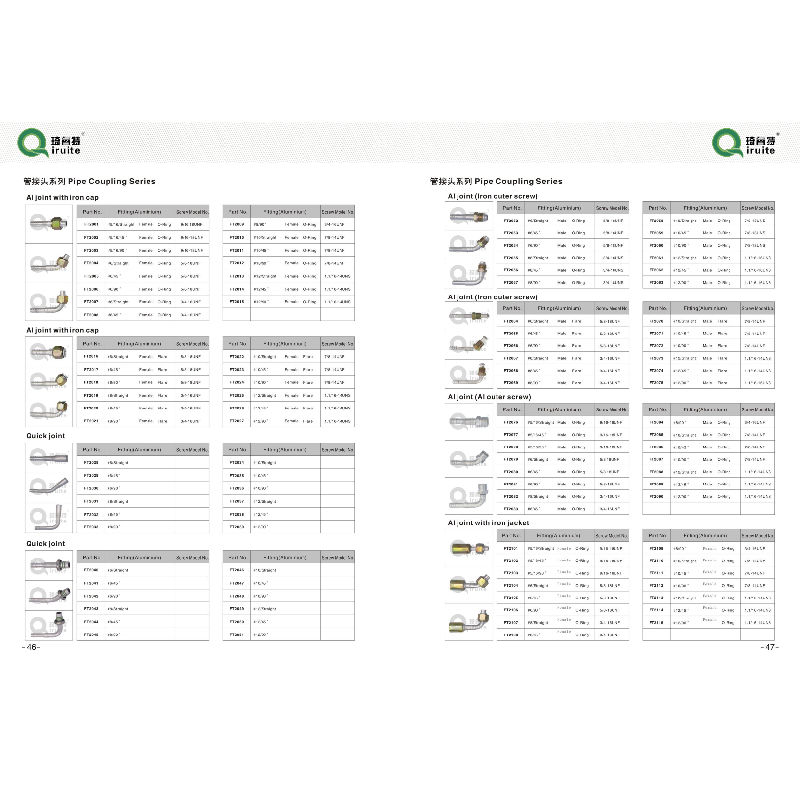rubber brake line
Understanding Rubber Brake Lines Importance and Maintenance
Rubber brake lines play a crucial role in the overall functionality and safety of a vehicle’s braking system. These components are designed to transport brake fluid from the master cylinder to the brake calipers or wheel cylinders, allowing the hydraulic pressure needed for effective braking. Understanding the significance of rubber brake lines and maintaining them properly can ensure vehicle safety and performance.
Rubber brake lines are typically made from a blend of natural and synthetic rubber, designed to withstand the high pressures associated with braking systems. They are flexible, allowing for movement while the vehicle’s suspension operates over various terrains. However, this flexibility can also lead to wear and tear over time. Exposure to heat, moisture, and road contaminants can degrade the rubber, leading to cracks or leaks, which can severely compromise the braking system's effectiveness.
One of the most significant advantages of rubber brake lines is their cost-effectiveness. They are generally cheaper than their metal counterparts and easier to install. However, it is essential to remember that while they are durable, rubber brake lines have a limited lifespan. Regular inspection is crucial to identify any signs of wear, such as bulging, cracking, or any fluid leaks. Drivers should be particularly vigilant about the age of their brake lines and replace them as recommended by the vehicle manufacturer or when noticeable signs of deterioration appear.
rubber brake line

Proper maintenance of rubber brake lines involves a few key practices. First, it’s important to regularly check the brake fluid level and maintain it within the recommended limits. This not only ensures that the brake system functions correctly but also helps in identifying potential leaks. If you notice any reduction in brake fluid levels, it’s advisable to investigate further.
Additionally, drivers should be aware of the importance of using high-quality brake fluid. Incompatible or low-quality fluids can accelerate the degradation of rubber brake lines, leading to premature failure. Always refer to the manufacturer’s specifications when selecting brake fluid.
In conclusion, rubber brake lines are a vital component of a vehicle’s braking system, providing flexibility and essential hydraulic support. Regular inspection and maintenance can prevent brake line failure, ensuring safe driving conditions. By being proactive in checking the condition of rubber brake lines and using quality components, drivers can enhance their vehicle's safety and performance. Whether you’re a seasoned mechanic or an everyday driver, understanding and caring for your brake lines is an essential aspect of vehicle maintenance that should never be overlooked.
-
Ultimate Spiral Protection for Hoses & CablesNewsJun.26,2025
-
The Ultimate Quick-Connect Solutions for Every NeedNewsJun.26,2025
-
SAE J1401 Brake Hose: Reliable Choice for Safe BrakingNewsJun.26,2025
-
Reliable J2064 A/C Hoses for Real-World Cooling NeedsNewsJun.26,2025
-
Heavy-Duty Sewer Jetting Hoses Built to LastNewsJun.26,2025
-
Fix Power Steering Tube Leaks Fast – Durable & Affordable SolutionNewsJun.26,2025

